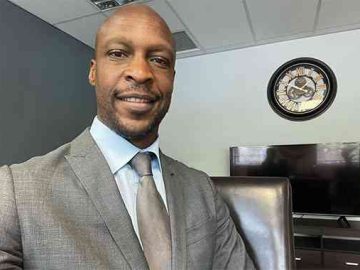- A federal judge said Mark Zuckerberg is not personally liable in over two dozen lawsuits.
- The lawsuits say Zuckerberg’s platforms are addictive to children.
- Plaintiffs said Meta knew Instagram and Facebook posed health risks to its users, especially kids.
Thanks for signing up!
Access your favorite topics in a personalized feed while you’re on the go.
download the app
By clicking “Sign Up”, you accept our Terms of Service and Privacy Policy. You can opt-out at any time by visiting our Preferences page or by clicking “unsubscribe” at the bottom of the email.
A federal judge said Meta CEO Mark Zuckerberg is not personally liable in over two dozen lawsuits accusing his company of causing social media addiction in children.
US District Judge Yvonne Gonzalez Rogers of California shared the decision in a 10-page court filing on Thursday. Plaintiffs said that Meta knew Instagram and Facebook posed health risks to its users, especially children.
The plaintiffs — which include parents and school districts — say Meta did not disclose the risks associated with the social media platforms, concealed them through “misleading talking points,” and prevented users from learning about them.
The plaintiffs also say Zuckerberg “directed, participated in, knew of, and in fact, served as the guiding spirit behind Meta’s tortious concealment and omissions,” according to the court filing.
However, the judge said in Thursday’s court filing that the plaintiffs had insufficient evidence that Zuckerberg personally directed the suppression of information about the dangers of social media.
“While possible that discovery may reveal a more active participation and direction by Zuckerberg in Meta’s alleged fraudulent concealment, the allegations before the Court are insufficient to meet the standard for corporate-officer liability in the thirteen at-issue jurisdictions,” the filing said.
The court’s ruling comes as world leaders crack down on some social media companies over claims that they are addictive to children and teens. In October, attorneys general from 14 different states filed lawsuits against TikTok, saying that the app is addictive and profits from damaging the mental health of children.
Legal experts previously told Business Insider that the sweeping lawsuits against TikTok mirror legal strategies used by the US government to crack down on the opioid and tobacco industries.
In Australia, Prime Minister Anthony Albanese this week announced plans to introduce a law banning children under 16 from having social media accounts. Meta’s head of safety, Antigone Davis, told the Associated Press that the company would respect any age limitations the Australian government wants to introduce.
Representatives for Meta declined to comment on the California judge’s ruling, and legal representatives for Zuckerberg did not respond to a request for comment from Business Insider.
Related stories
Previn Warren, a representative for the plaintiffs at Motley Rice LLC, told Business Insider that its lawsuit against Meta is still ongoing.
“Whether Mark Zuckerberg is held accountable in his personal capacity or not, our lawsuit against Meta, the company he has led for 20 years, is moving forward,” the statement said. “We will not stop until the hundreds of families and school districts we represent have their day in court. We are moving forward with discovery to uncover the truth about how Big Tech has knowingly prioritized profits over the safety of our children.”
There are dozens of plaintiffs involved in the ongoing legal procedures. Other defendants listed in the lawsuits included Snap, ByteDance, and Google.
In an amended complaint filed in December 2023, the plaintiffs said they have “suffered various personal injuries because of their use of Defendants’ products.”
“These harms include pain, suffering, disability, impairment, disfigurement, death, an increased risk of injury and other serious illnesses, loss of enjoyment of life, loss of society, aggravation or activation of preexisting conditions, scarring, inconvenience, incurred costs for medical care and treatment, loss of wages and wage-earning capacity, and other economic and non-economic damages,” the complaint read.
“These losses are often permanent and continuing in nature,” the complaint reads.



